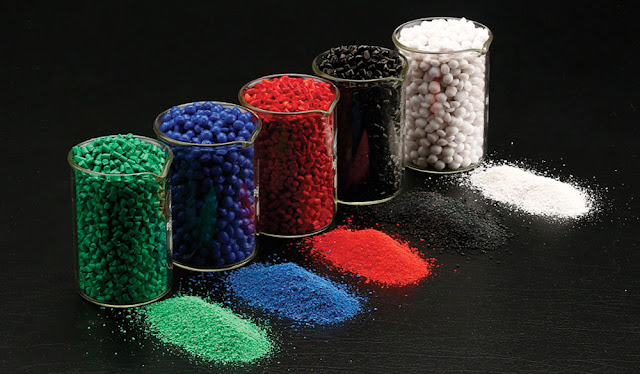Recycled Plastic Granules: The Future of Sustainable Plastic Production
 |
Rise in Plastic Waste and the Need for Effective Recycling
Plastic waste has become a major environmental issue globally in recent decades. With rising plastic consumption, municipalities struggle to handle the massive amounts of plastic trash. Most plastic ends up in landfills or oceans, polluting the environment for hundreds of years. Various studies estimate that around 8 million tons of plastic enter oceans annually. With conventional plastic disposal and recycling methods proving unsustainable, industries are searching for better alternatives. One such promising solution is using Recycled Plastic Granules to manufacture new plastic products in a closed-loop system.
The Plastic Recycling Process
The recycling process begins with collecting plastic waste from different sources like households, commercial establishments etc. This waste is then sorted based on plastic resin types like PET, HDPE, PVC etc. Using various sorting machines, different plastic types are separated. The sorted plastic waste then undergoes shredding to break it down into smaller flakes. These flakes are washed, dried and melted in specialized extruders. High pressure and heat are applied to transform the plastic flakes into a liquid state. This molten plastic is then pushed through a die-head to produce plastic pellets or granules. The recycled plastic granules now resemble the raw material pellets used in manufacturing new plastic products.
Using Recycled Plastic Granules in Manufacturing
These recycled plastic granules find many applications as a sustainable raw material substitute. Plastic product manufacturers utilize these granules in injection molding, blow molding and extrusion processes to fabricate new products. Common items produced using recycled plastic include plastic furniture, mattress casings, traffic cones, floor tiles, garbage bins and more. Depending on property requirements, virgin plastic granules may be blended in regulated ratios with recycled granules. Recycled plastic granules have been proving their technical and economic viability for production of new plastic items. They provide upto 80-90% cost savings compared to virgin plastic. Using recycled content also lowers carbon footprint and dependence on petroleum derived plastic feedstock.
Boosting Recycling Rates with Effective Collection
While plastic recycling technologies are advancing, the key challenge remains effective plastic waste collection methods to boost recycling rates. Currently, less than 10% of plastic globally gets recycled with most ending up as waste. Municipalities need systematic waste management infrastructure to ensure maximum plastic recycling. Implementing door-to-door plastic collection, establishing material recovery facilities and partnering with producers are some measures being adopted. Producers are also supporting collection efforts through extended producer responsibility programs. Apart from households, commercial plastic recycling needs improvement through separate collection bins and incentives for businesses. Harmonizing global standards for plastic labeling and reach of recycling schemes would further increase recycling rates. With comprehensive waste collection solutions, high quality recycled plastic granules will be more accessible to industry.
Quality Standards for Recycled Plastic Granules
For recycled plastic granules to completely replace virgin material usage, maintaining standardized quality is important. Granule quality depends on factors like type and amount of contamination, foreign materials inclusion rate and stability of material properties after multiple recycling cycles. Recyclers need to adhere to quality protocols to produce consistent recycled content acceptable to manufacturers. Industry bodies have framed testing and certification standards for different properties of recycled plastic like melt flow rate, ash content, density, tensile strength etc. Material tracing capability up to the source of plastic waste collected is also essential. Strict compliance with quality benchmarks gives manufacturers confidence to utilize higher ratios of recycled plastic in place of virgin material. This supports the business case for recycled plastic granules and boosts their demand.
Government Policies Encouraging Plastic Recycling
Governments across nations are implementing regulations to boost plastic recycling. One such measure is prohibiting landfill and incineration of recyclable plastic waste. High landfill taxes directly increase the cost of plastic waste disposal diverting it towards recycling instead. Preferential government procurement policies promote plastic products made from recycled content. Strategies like extended producer responsibility place onus on plastic manufacturers to setup adequate recycling infrastructure. Plastic bag bans have also positively impacted recycling rates. Financial incentives like recycling subsidies and low interest green loans aid investments in recycling infrastructure projects. Similarly, carbon credit policies can compensate industries adopting recycled plastic versus virgin material. With supportive policy push, recycled plastic granules will progressively replace virgin plastic pellets creating a circular economy.
As a sustainable solution to curb plastic pollution, recycled plastic granules offer viable commercial and environmental benefits. With advancements in plastic recycling technologies, these secondary raw material granules can match performance of virgin plastic in most applications. However, boosting collection rates, maintaining standard quality and policy driver initiatives are needed to realize their full potential. If collectively addressed by all relevant stakeholders, recycled plastic granules have potential to reshape global plastic production on environmentally conscious lines. This presents a promising business avenue for industries seeking to incorporate sustainability practices.
Get more insights on This Topic- Recycled Plastic Granules



Comments
Post a Comment